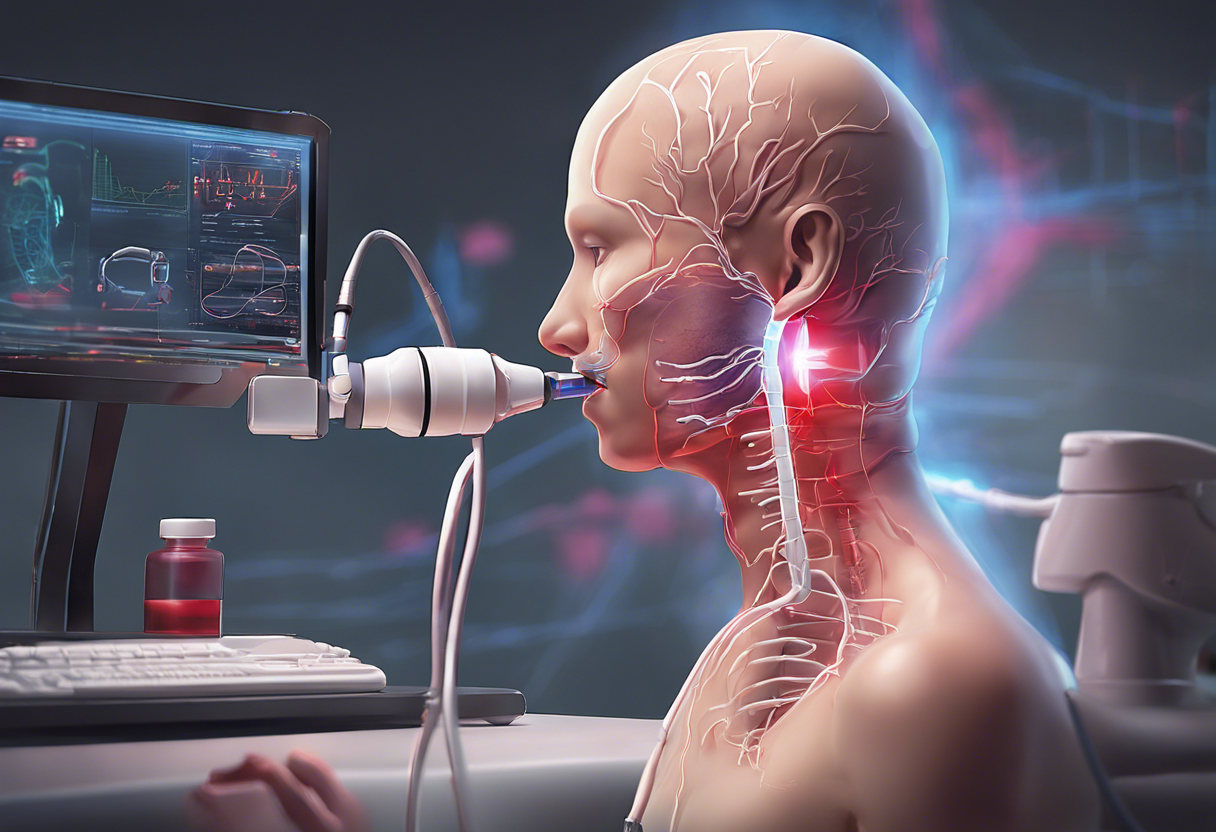
In a groundbreaking development, scientists at Glasgow University have unveiled a revolutionary AI-powered laser camera capable of remotely reading a person's heartbeat. This cutting-edge system, leveraging the latest in AI and quantum technologies, has the potential to transform how we monitor our health, offering convenient at-home setups and quick readings in public spaces.
Professor Daniele Faccio of Glasgow University's Advanced Research Centre envisions a future where this technology is readily available in shopping malls or homes, providing individuals with instant heartbeat readings. These readings could then be seamlessly integrated into online medical records, offering a proactive approach to healthcare monitoring.
Unlike traditional stethoscopes, which require training to use properly and may miss subtle abnormalities, the new laser heart monitor offers a non-intrusive and precise method of tracking cardiovascular health. Faccio highlights the importance of monitoring a person's heartbeat remotely, emphasizing its value in detecting irregularities that may indicate a higher risk of strokes or cardiac arrests.
The system involves high-speed cameras capable of recording images at an impressive 2,000 frames per second. A laser beam is directed onto the skin of the throat, and the reflections are analyzed to measure minute movements as the main artery expands and contracts with each heartbeat. To filter out interference from larger chest movements, AI technology is employed to focus exclusively on the specific vibrations caused by the heartbeat.
Faccio explains that the AI system not only isolates the heartbeat signal from other noises but also customizes the analysis based on an individual's unique cardiac behavior. This personalized approach allows for the early detection of changes in heart rate and the identification of specific defects, offering a more targeted and accurate assessment of cardiovascular health.
LightHearted AI, a start-up founded by Faccio and his team, aims to bring this groundbreaking technology to the public. The company is currently seeking venture capital to further develop and expand the capabilities of their devices. Faccio emphasizes the accuracy of the system, noting that it can distinguish between individuals even in a shared living space, making it a potential tool for biometric identification.
Anticipated to be ready for use next year, these AI laser heart monitors could usher in a new era of healthcare, making it easier and quicker to monitor heartbeats outside of traditional medical settings. The potential benefits are substantial, offering individuals a proactive and accessible means of safeguarding their cardiovascular health.